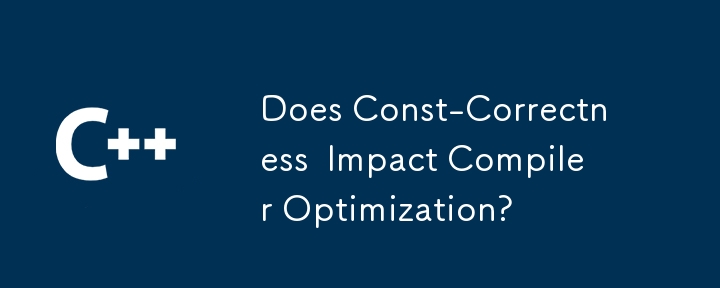

Const-correctness is a programming practice that improves code readability and reduces errors by properly denoting the const-ness of variables. However, many wonder if it also enhances program performance.
The answer is: Typically no, const-correctness alone does not directly improve performance. It merely restricts the modification of objects, making them immutable within a specific scope. While this eliminates certain optimization opportunities, it does not create new ones.
Consider the following function:
<code class="c">int foo(const int *p) {
int x = *p;
bar(x);
x = *p;
return x;
}</code>Even though the pointer is declared as const, the compiler cannot assume that the value pointed to remains constant because it may be modified elsewhere in the program. As a result, it cannot optimize based on the const-ness of the pointer.
Reference vs. Const Pointer
A reference is an alias for an existing object, while a const pointer points to a const object. Both behave similarly, but there are subtle differences:
Internally, both references and const pointers are likely stored as addresses, but they have distinct lifetime behaviors and restrictions on modification.
Exception: const with restrict
In C (but not C ), const pointers can be combined with the restrict keyword. restrict indicates that the pointer is the only way to access the object it points to. This may allow compilers to assume that the object is not modified elsewhere in the program, opening up optimization opportunities. However, such optimizations are not universally implemented by all compilers.
The above is the detailed content of Does Const-Correctness Impact Compiler Optimization?. For more information, please follow other related articles on the PHP Chinese website!




